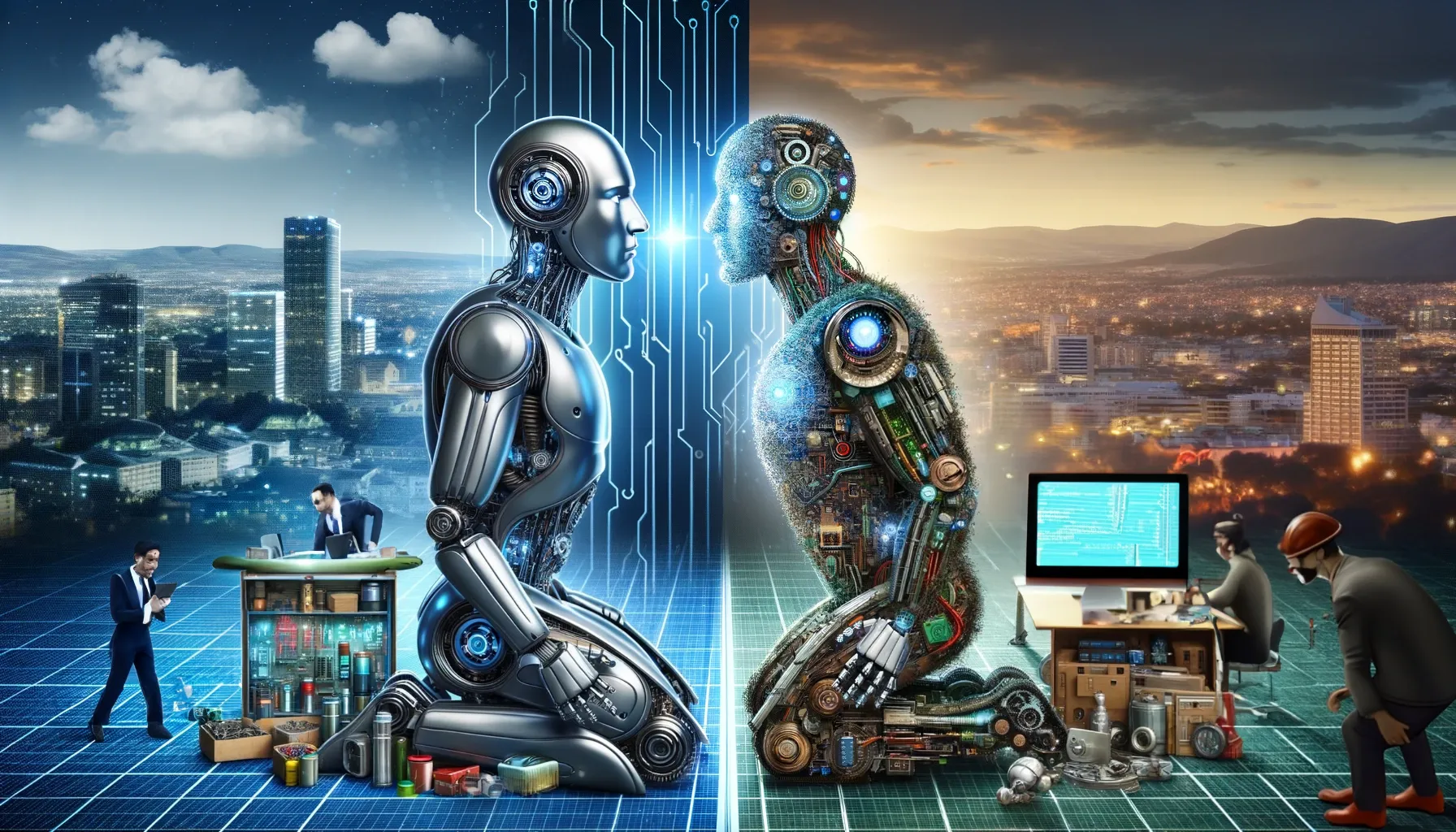
Open Source vs OpenAI: The Ultimate Showdown for AI Supremacy in 2024
- by dgihost.com
In the ever-evolving landscape of artificial intelligence, a crucial question has emerged: Can decentralized, open-source AI models compete with the powerful proprietary ones, such as OpenAI’s GPT-4? This debate gained renewed vigor when Arnaud Benard, co-founder of Galileo AI, confidently declared, “If you think open-source models will beat GPT-4 this year, you’re wrong.” The stage was set for a Twitter storm, with reactions ranging from staunch support to vehement disagreement.
Ryan Casey, the AI enthusiast behind “Beyond The Yellow Woods,” took a more optimistic stance, asserting that open source has the potential to match or surpass private models in the current year. “If there’s demand for it, there will be innovation,” Casey affirmed.
AI strategist Jeremi Traguna provided a counterpoint, emphasizing the dynamic nature of OpenAI’s models. Traguna suggested that open-source models might struggle to keep up with the continuous advancements, projecting the existence of a GPT-5 by the time competitors catch up with GPT-4.5 Turbo.
Tech analyst Jon Howells weighed in, pointing out that resources alone don’t dictate success in the open vs. closed AI race. He highlighted Mistral AI, a French startup that has gained recognition for its Mixtral LLM, a model that outperforms GPT-3.5 in various use cases. Howells predicts the release of a GPT-4 level open-source model by the end of the year from Mistral AI or a similar outfit.
In a philosophical twist, Nous Research cofounder “Teknium” argued that every capability increase in open source is a permanent advancement, providing a resource accessible to the world indefinitely. This viewpoint brings attention to the long-term benefits of open-source AI technology that cannot be restricted by any single entity.
The ongoing open-source versus closed-source debate draws parallels to historic battles like the Windows vs. Linux operating system rivalry. Santiago Pino of ML School highlighted the potential for open-source software to offer customization and control, crucial for corporate users who seek transparency and avoid vendor lock-in.
Furkan Gözükara, a computer engineer, presented a nuanced perspective, agreeing with Benard on specific task performance but emphasizing the niche potential of open-source models in domain-specific problems where customization is paramount.
As the debate rages on, industry giants weigh in with their opinions. Yan Lecun, Meta’s head of AI development, staunchly defends open-source AI, claiming it will eventually surpass closed and proprietary models. Google acknowledges the threat, stating that open-source models are faster, more customizable, and pound-for-pound more capable.
The question of whether open-source models will outpace GPT-4 and future iterations in the current year remains unanswered. Yet, one thing is clear: closed-source models may have resource advantages and rapid iteration, but open-source tools are evolving rapidly, offering permanent capabilities and customizability. The AI community watches as the competition unfolds, eagerly anticipating the potential of using the best technology available.
In the ever-evolving landscape of artificial intelligence, a crucial question has emerged: Can decentralized, open-source AI models compete with the powerful proprietary ones, such as OpenAI’s GPT-4? This debate gained renewed vigor when Arnaud Benard, co-founder of Galileo AI, confidently declared, “If you think open-source models will beat GPT-4 this year, you’re wrong.” The stage…